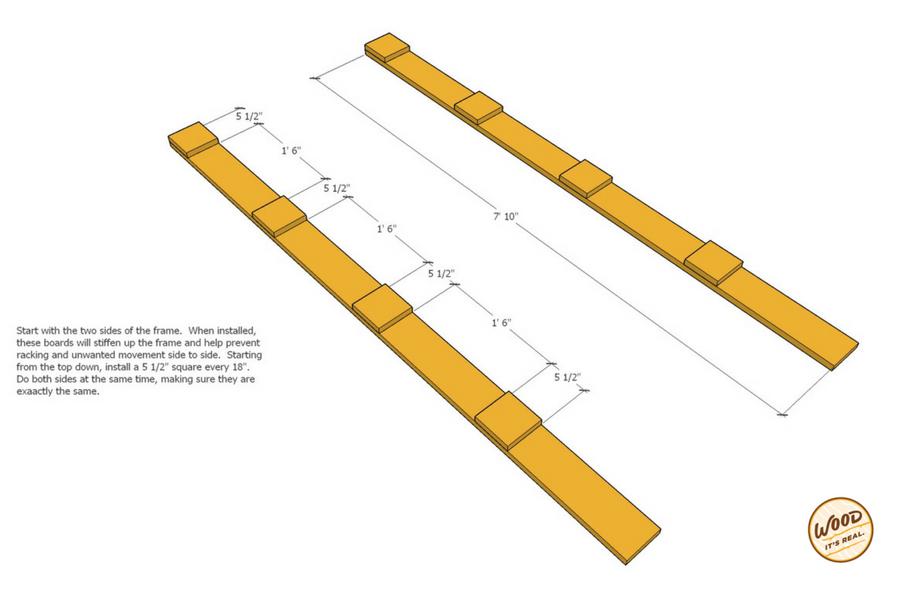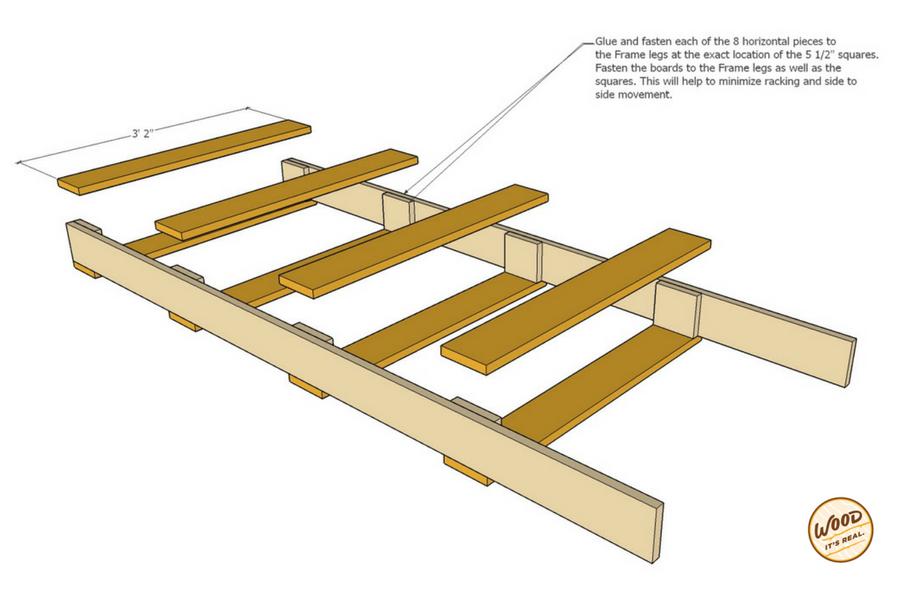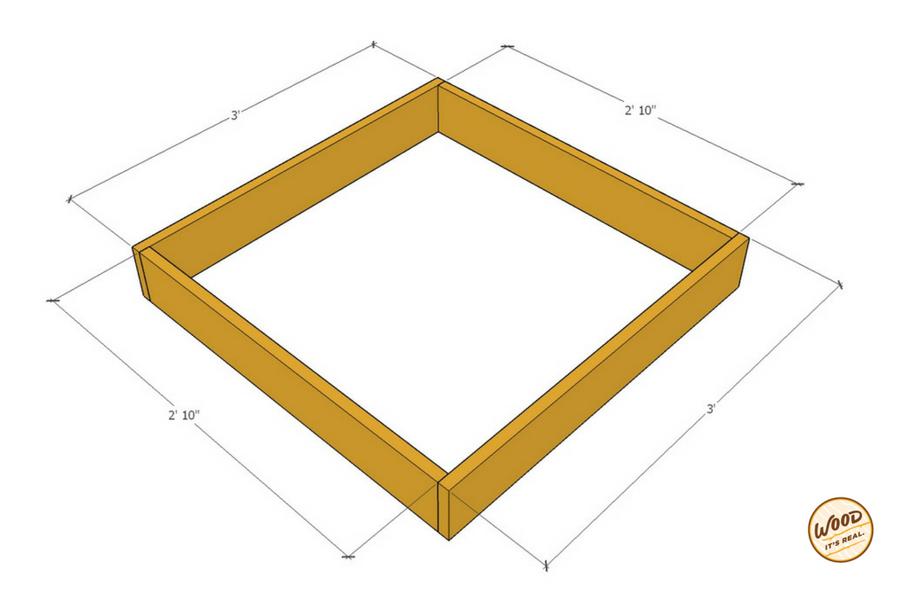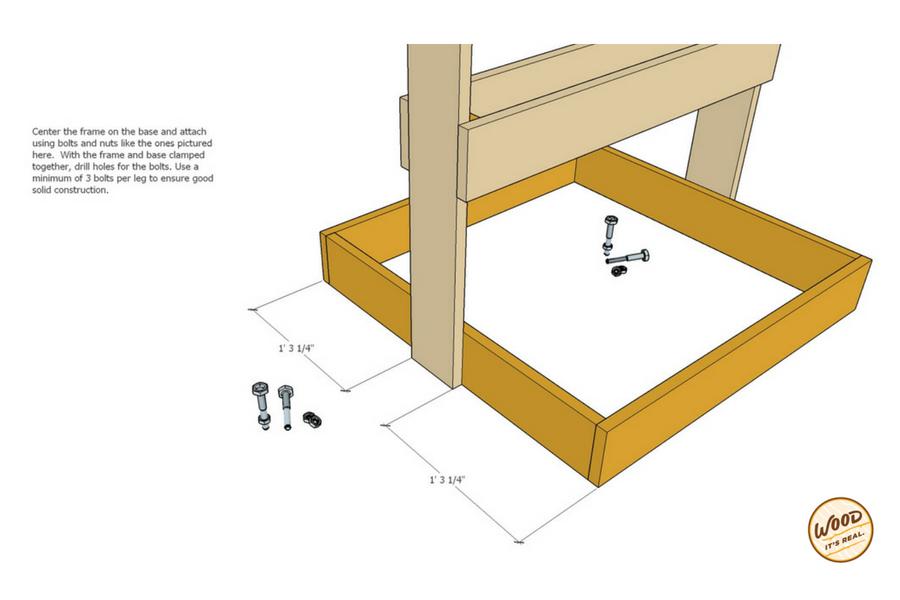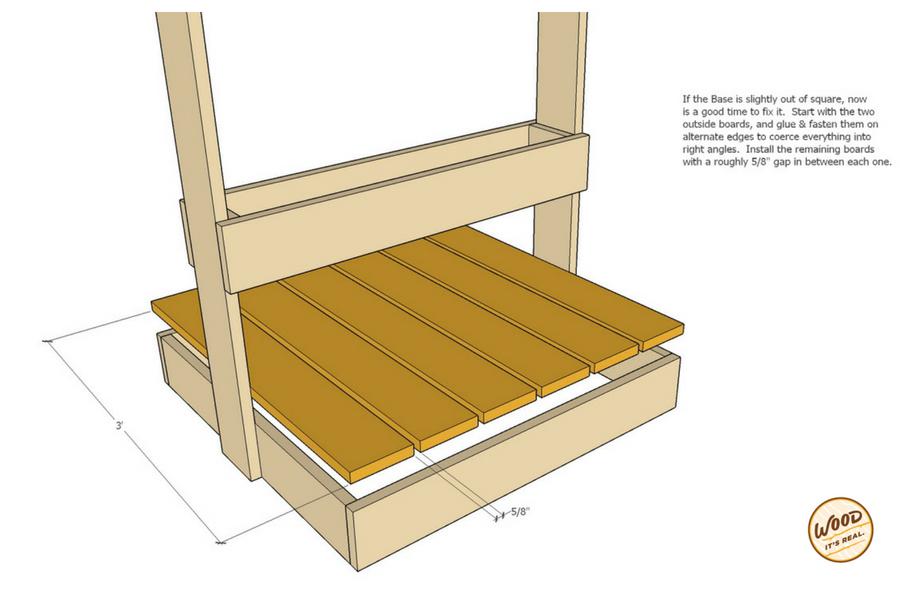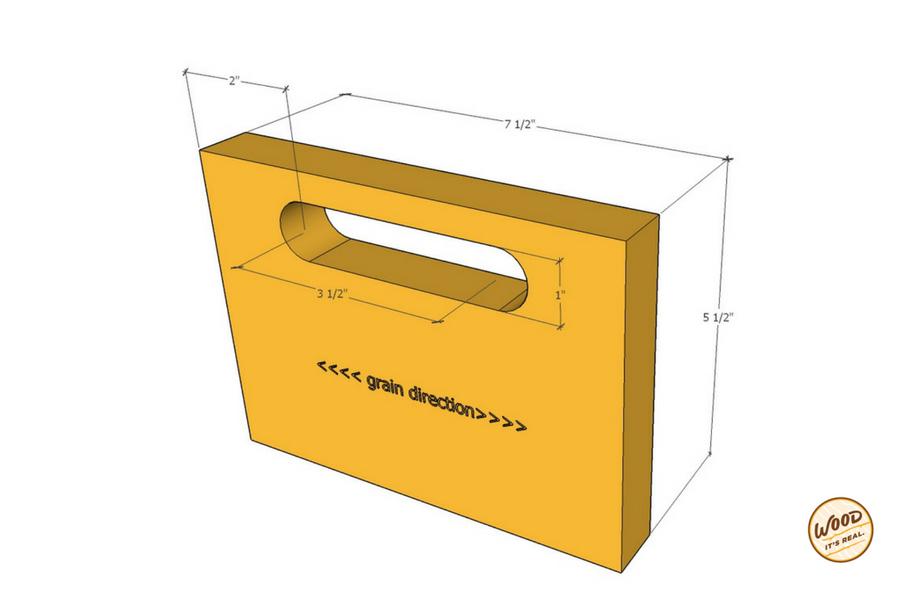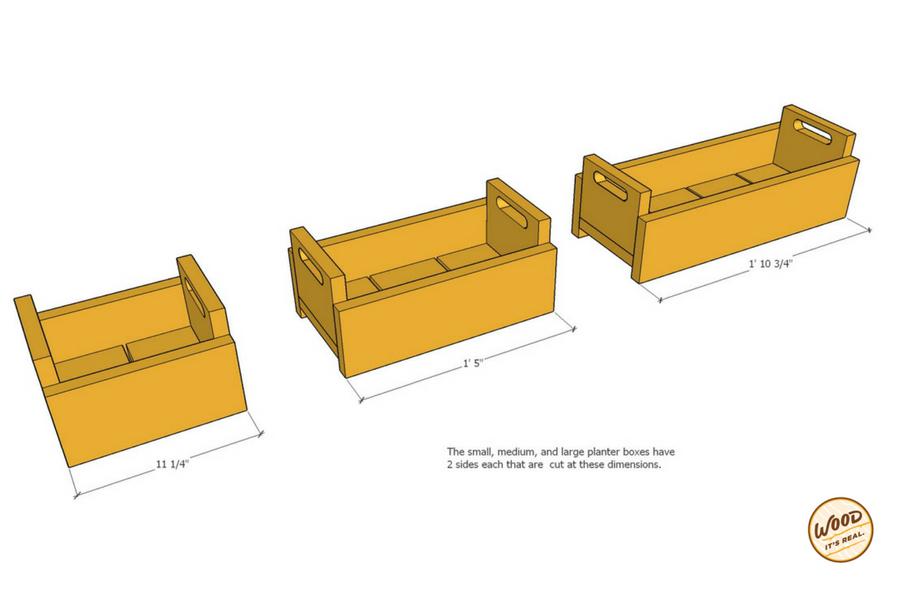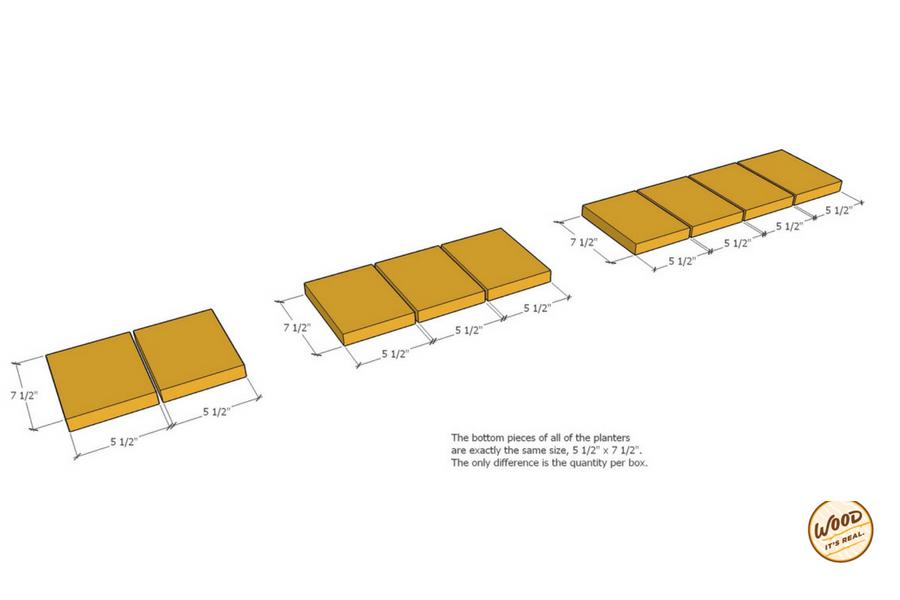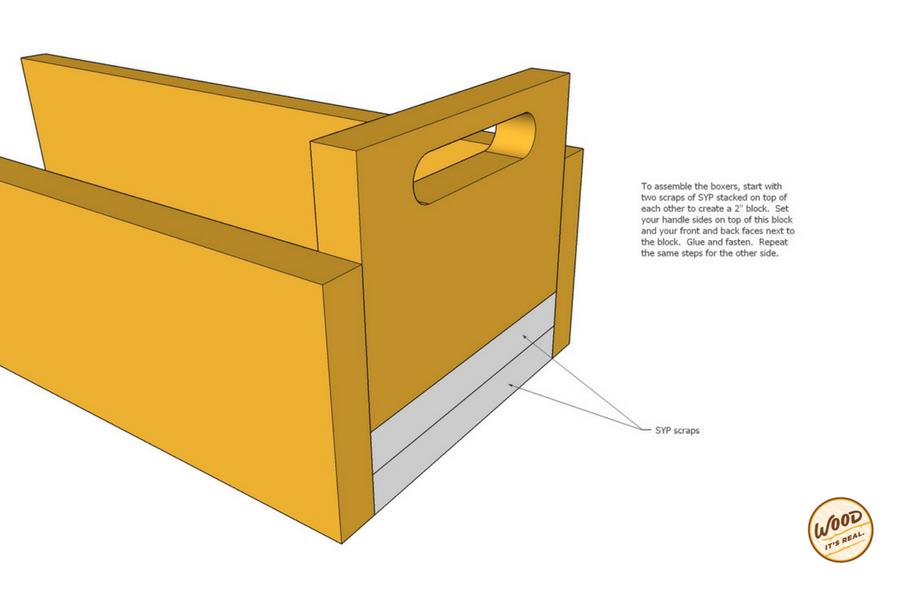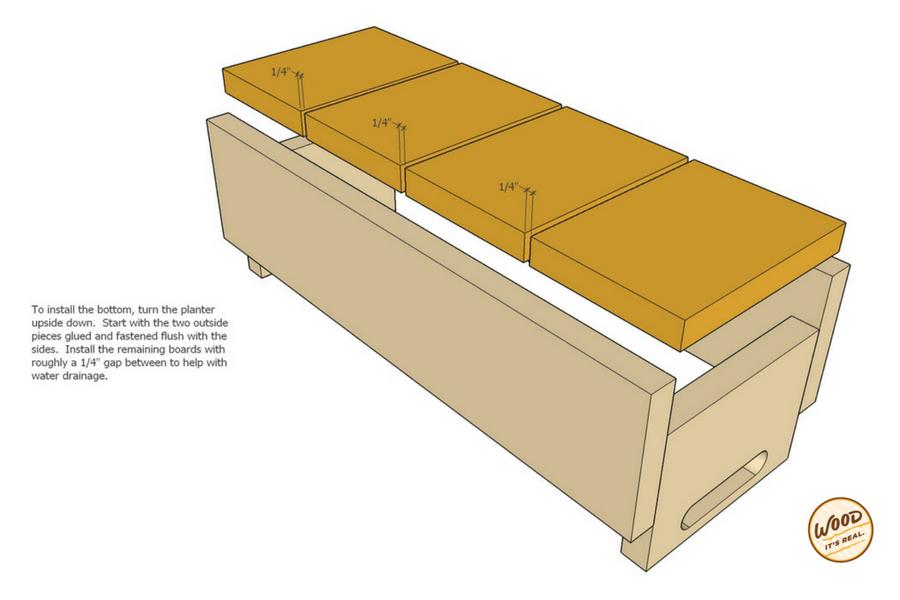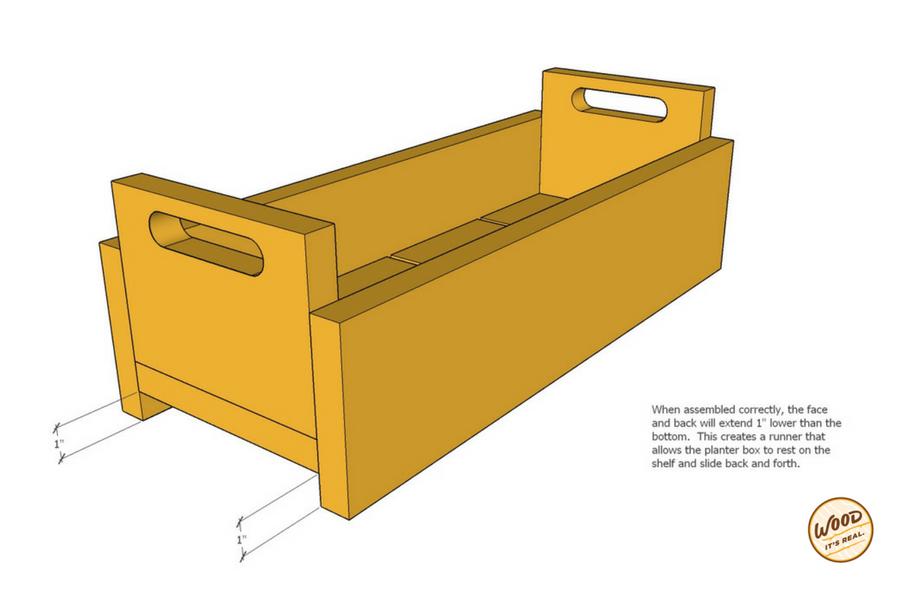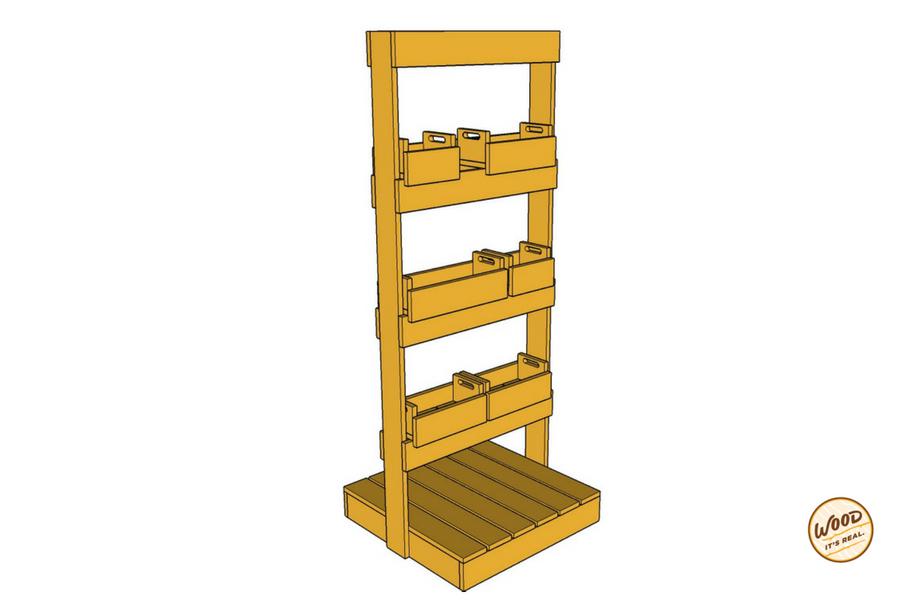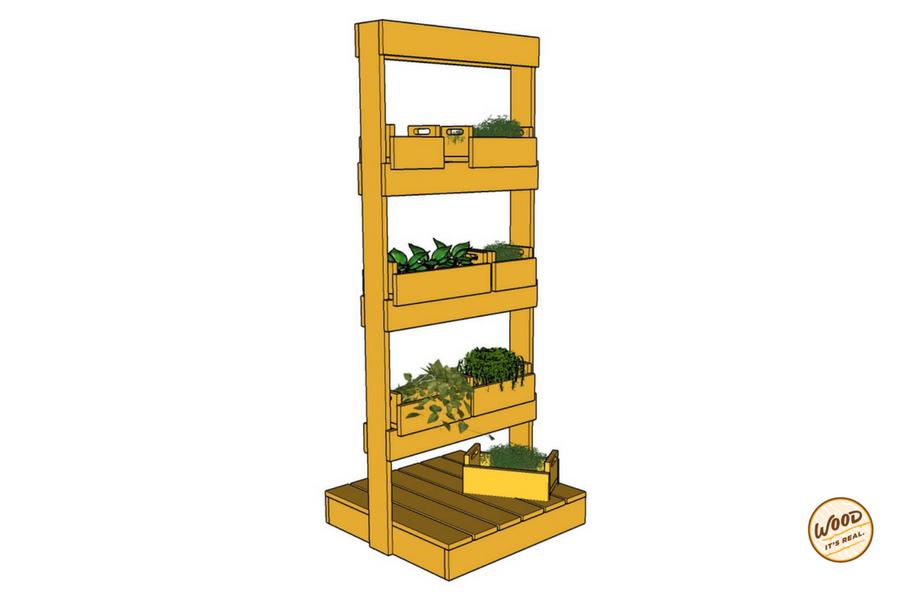Mix and Match Vertical Garden
By Wood. It's Real.You’d like to set up a garden but you don’t have the space, the funds to get it started, or a green thumb to keep it alive. We can’t help with the green thumb part, but we can assist with the other challenges with this project: a mix and match vertical garden.
Directions
-
Construct Two Vertical Frame Sides
Cut two boards 7’10” long.
Cut a total of 8 smaller squares, 5.5″ long.
Glue and screw the pieces on the boards 1.5 feet apart. Each side needs to be exactly the same so the “shelves” aren’t crooked. -
Cut and Attach Braces/Shelves
Cut eight lengths, 3’2″ each.
Place the boards so they’re in line with the smaller squares you attached.
Glue and screw the brace boards so they’re flush with the edge of the frame legs. -
Build the Base
Cut two lengths 3′ long
Cut two lengths 2’10” long
Glue and screw the boards together so the total dimensions are 3’x3′. -
Attach the Vertical Garden Assembly
Center the frame on the base. If you’re counting, the edges of the vertical board will be just over 1’3″ from the outside edge.
With the frame and base clamped together, drill holes for the bolts. Use a minimum of three bolts per leg to make the vertical garden more solid.
Attach the bolts and nuts. -
Lay the Base Boards
Cut six lengths 3′ each.
If your square is slightly off, now is the time to fix it. Start with the two outside boards, and glue & fasten the top 3′ boards on alternate edges to coerce everything into right angles.
Install the remaining boards with just under 1/2″ gap between each one. -
Cut the End Pieces of the Boxes
Let’s start with building one box. Then you can figure out how many/what sizes you want. More on that further down.
Pay attention to the grain direction on this. You want the grain to run side to side. For each box you build, cut the end pieces 7.5″ inches long.
The handle holes are totally optional. If you have a jig saw or some other tricks up your sleeve, we suggest the handle hole be approximately an inch down from the top edge and 2″ from each side. It can be 1″ high and 3.5″ wide. -
Cut the Sides of the Boxes
You can decide the sizes/number of garden boxes you want now or later.
Refer to this picture to help figure out what lengths of boxes mix and match well. -
Cut the Bottom Pieces for the Box
The bottom pieces of all the planters are exactly the same size, 5.5″ x 7.5″. The only difference is the quantity per box.
Cut how ever many you need for the boxes you build. -
Assemble Sides and Ends of the Box
Start with two scraps of SYP stacked on top of each other to create a 2″ block.
Set your handle sides on top of this block and your front and back lengths next to the block. Glue and fasten one end, but don’t attach the scraps.
Repeat the same steps for the other side. -
Install Bottom of Box
To install the bottom, turn the planter upside down.
Start with the two outside pieces glued and fastened flush with the sides.
Install the remaining boards with an approximately 1/4″ gap between to help water drainage. -
A Properly Built Box
When assembled correctly, the face and back will extend 1″ lower than the bottom. This creates a runner that allows the planter to rest on the shelf and slide back and forth.
-
Build the Rest of the Boxes
Follow the previous steps to assemble the rest of your boxes using whichever configuration you want.
-
Get Some Dirt and Start Planting
Get some planting soil and some seeds or plants.
Fill your planter boxes with all of that goodness and enjoy your new garden.








